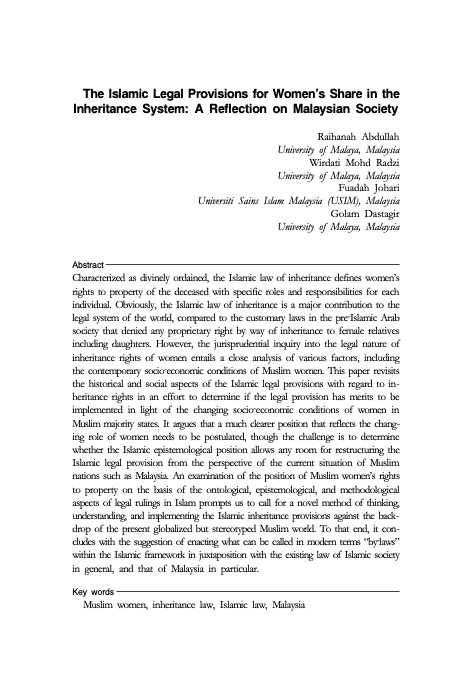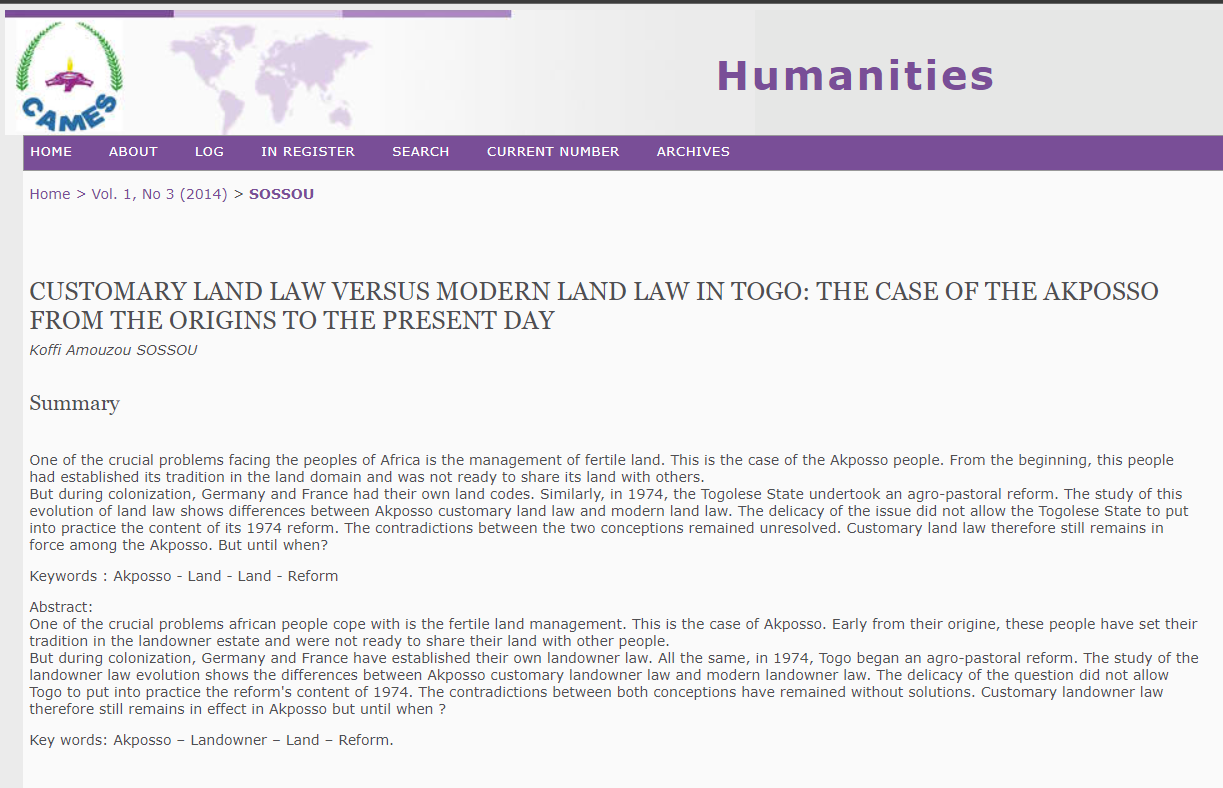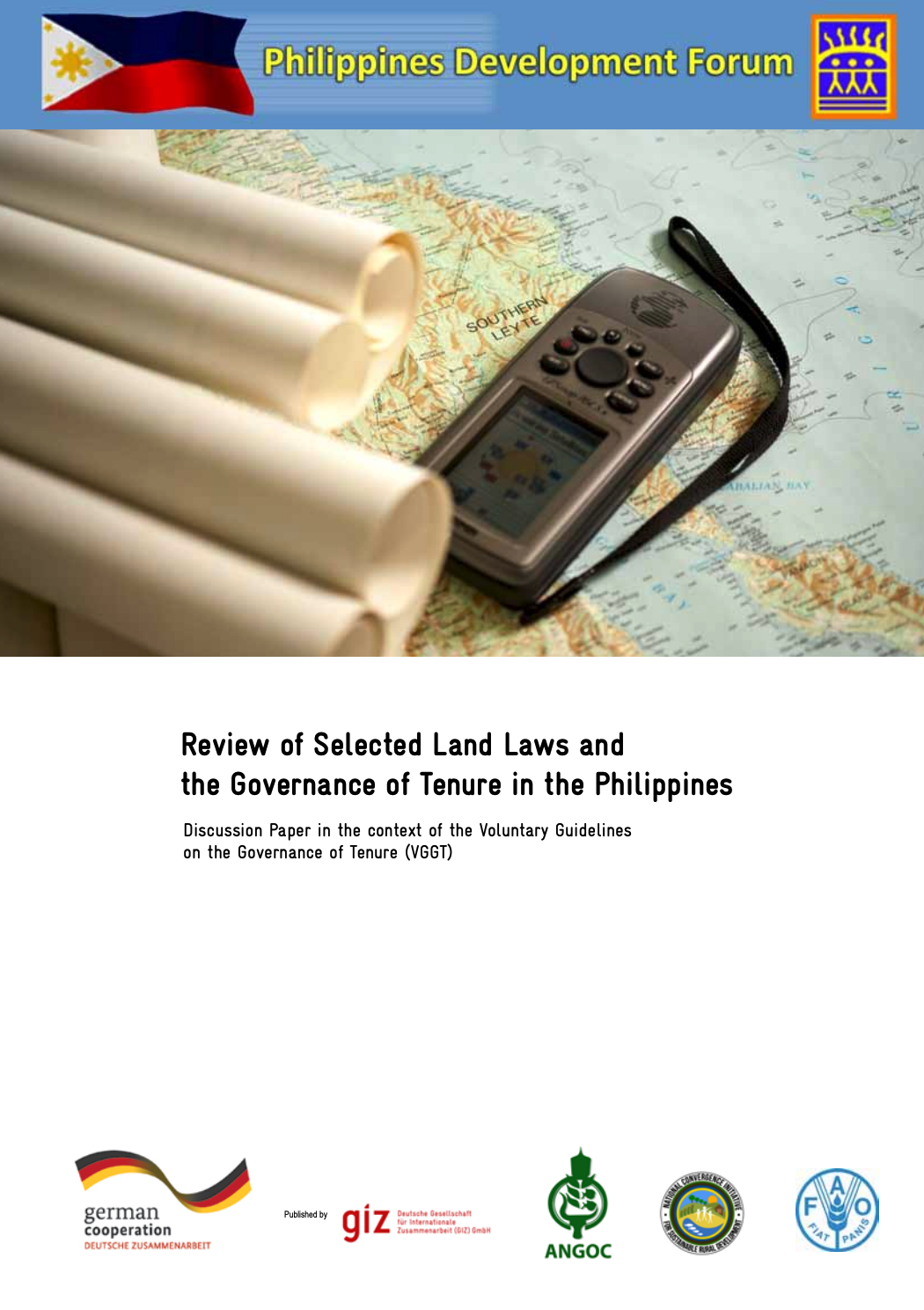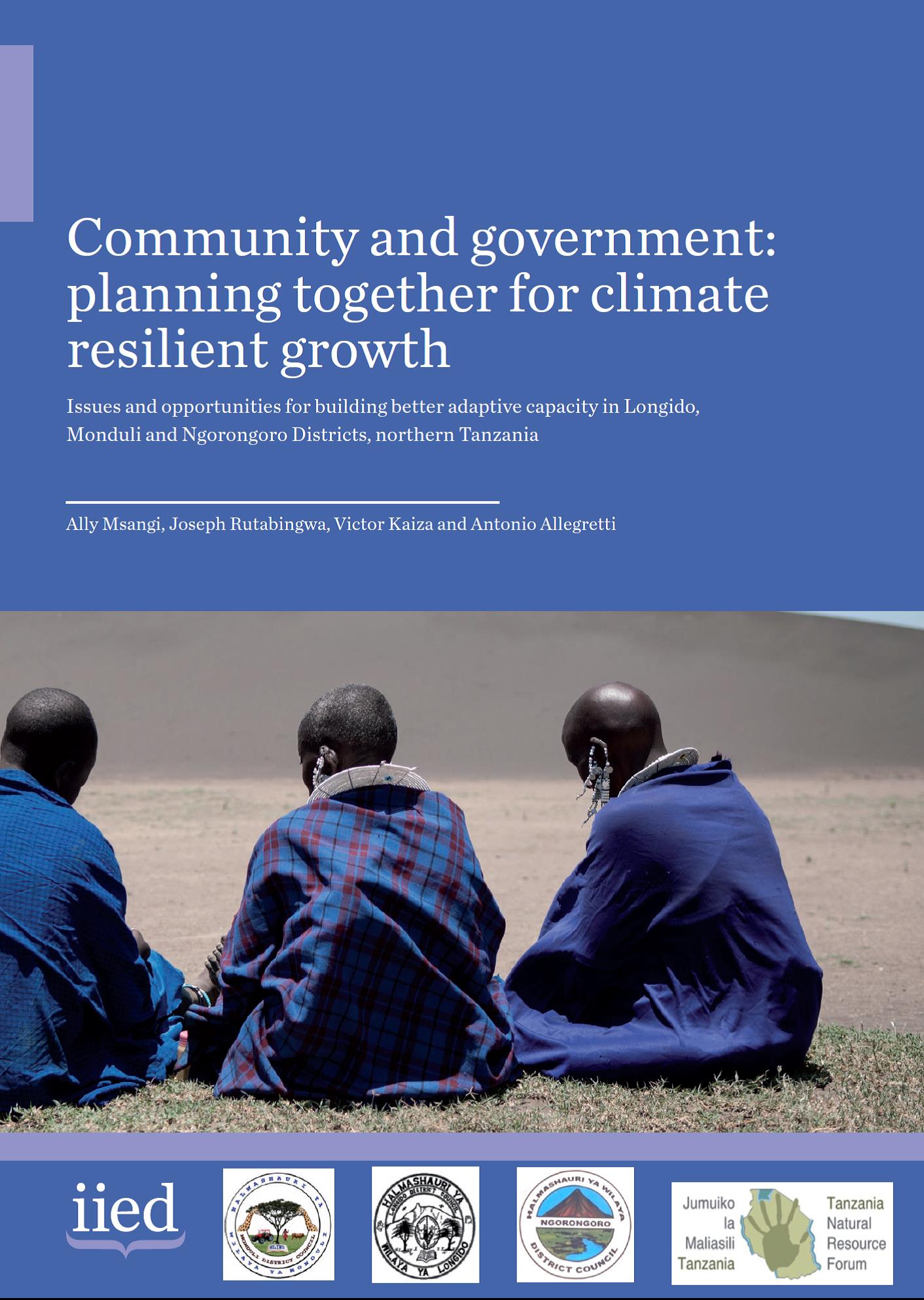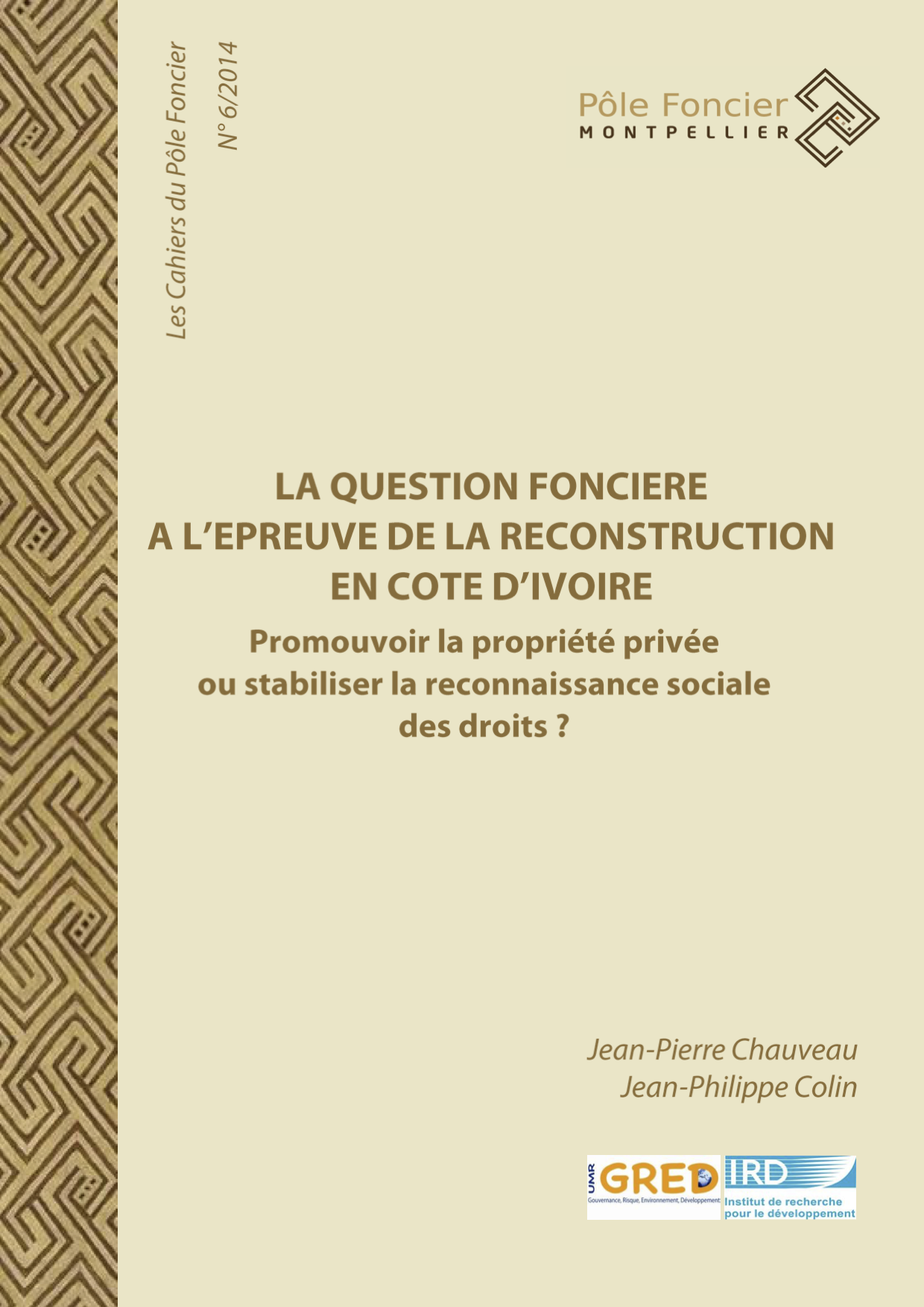The Islamic Legal Provisions for Women’s Share in the Inheritance System: A Reflection on Malaysian Society
Characterized as divinely ordained, the Islamic law of inheritance defines women’s rights to property of the deceased with specific roles and responsibilities for each individual. Obviously, the Islamic law of inheritance is a major contribution to the legal system of the world, compared to the customary laws in the pre‐Islamic Arab society that denied any proprietary right by way of inheritance to female relatives including daughters.

